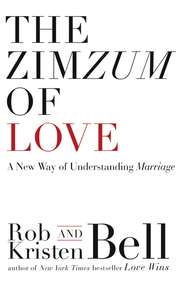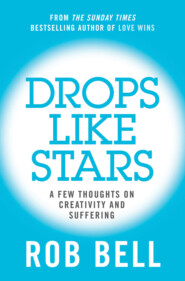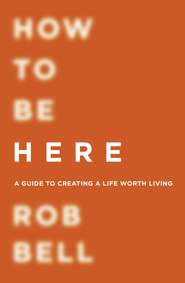По всем вопросам обращайтесь на: info@litportal.ru
(©) 2003-2024.
✖
Love Wins and The Love Wins Companion
Автор
Год написания книги
2018
Настройки чтения
Размер шрифта
Высота строк
Поля
“What do you think? How do you read it?”
he asks, again and again and again.
The ancient sages said the words of the sacred text were black letters on a white page—there’s all that white space, waiting to be filled with our responses and discussions and debates and opinions and longings and desires and wisdom and insights. We read the words, and then enter into the discussion that has been going on for thousands of years across cultures and continents.
My hope is that this frees you. There is no question that Jesus cannot handle, no discussion too volatile, no issue too dangerous. At the same time, some issues aren’t as big as people have made them. Much blood has been spilled in church splits, heresy trials, and raging debates over issues that are, in the end, not that essential. Sometimes what we are witnessing is simply a massive exercise in missing the point. Jesus frees us to call things what they are.
And then, last of all, please understand that nothing in this book hasn’t been taught, suggested, or celebrated by many before me. I haven’t come up with a radical new teaching that’s any kind of departure from what’s been said an untold number of times. That’s the beauty of the historic, orthodox Christian faith. It’s a deep, wide, diverse stream that’s been flowing for thousands of years, carrying a staggering variety of voices, perspectives, and experiences.
If this book, then, does nothing more than introduce you to the ancient, ongoing discussion surrounding the resurrected Jesus in all its vibrant, diverse, messy, multivoiced complexity—well, I’d be thrilled.
Chapter 1
What About the Flat Tire?
Several years ago we had an art show at our church. I had been giving a series of teachings on peacemaking, and we invited artists to display their paintings, poems, and sculptures that reflected their understanding of what it means to be a peacemaker. One woman included in her work a quote from Mahatma Gandhi, which a number of people found quite compelling.
But not everyone.
Someone attached a piece of paper to it.
On the piece of paper was written: “Reality check: He’s in hell.”
Really?
Gandhi’s in hell?
He is?
We have confirmation of this?
Somebody knows this?
Without a doubt?
And that somebody decided to take on the responsibility of letting the rest of us know?
Of all the billions of people who have ever lived, will only a select number “make it to a better place” and every single other person suffer in torment and punishment forever? Is this acceptable to God? Has God created millions of people over tens of thousands of years who are going to spend eternity in anguish? Can God do this, or even allow this, and still claim to be a loving God?
Does God punish people for thousands of years with infinite, eternal torment for things they did in their few finite years of life?
This doesn’t just raise disturbing questions about God; it raises questions about the beliefs themselves.
Why them?
Why you?
Why me?
Why not him or her or them?
If there are only a select few who go to heaven, which is more terrifying to fathom: the billions who burn forever or the few who escape this fate? How does a person end up being one of the few?
Chance?
Luck?
Random selection?
Being born in the right place, family, or country?
Having a youth pastor who “relates better to the kids”?
God choosing you instead of others?
What kind of faith is that?
Or, more important:
What kind of God is that?
And whenever people claim that one group is in, saved, accepted by God, forgiven, enlightened, redeemed—and everybody else isn’t—why is it that those who make this claim are almost always part of the group that’s “in”?
Have you ever heard people make claims about a select few being the chosen and then claim that they’re not part of that group?
Several years ago I heard a woman tell about the funeral of her daughter’s friend, a high-school student who was killed in a car accident. Her daughter was asked by a Christian if the young man who had died was a Christian. She said that he told people he was an atheist. This person then said to her, “So there’s no hope then.”
No hope?
Is that the Christian message?
“No hope”?
Is that what Jesus offers the world?
Is this the sacred calling of Christians—to announce that there’s no hope?
The death of this high-school student raises questions about what’s called the “age of accountability.” Some Christians believe that up to a certain age children aren’t held accountable for what they believe or who they believe in, so if they die during those years, they go to be with God. But then when they reach a certain age, they become accountable for their beliefs, and if they die, they go to be with God only if they have said or done or believed the “right” things. Among those who believe this, this age of accountability is generally considered to be sometime around age twelve.
This belief raises a number of issues, one of them being the risk each new life faces. If every new baby being born could grow up to not believe the right things and go to hell forever, then prematurely terminating a child’s life anytime from conception to twelve years of age would actually be the loving thing to do, guaranteeing that the child ends up in heaven, and not hell, forever. Why run the risk?
And that risk raises another question about this high-school student’s death. What happens when a fifteen-year-old atheist dies? Was there a three-year window when he could have made a decision to change his eternal destiny? Did he miss his chance? What if he had lived to sixteen, and it was in that sixteenth year that he came to believe what he was supposed to believe? Was God limited to that three-year window, and if the message didn’t get to the young man in that time, well, that’s just unfortunate?
And what exactly would have had to happen in that three-year window to change his future?
Would he have had to perform a specific rite or ritual?
Or take a class?











